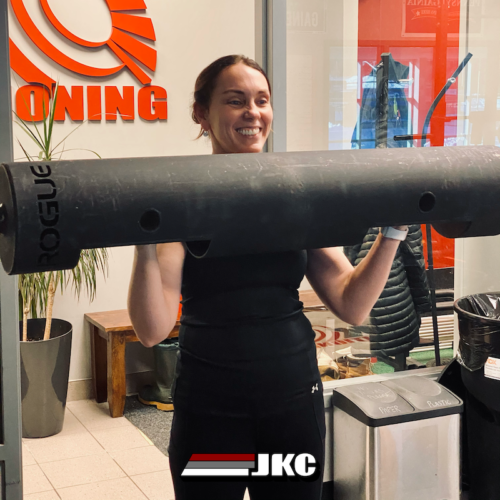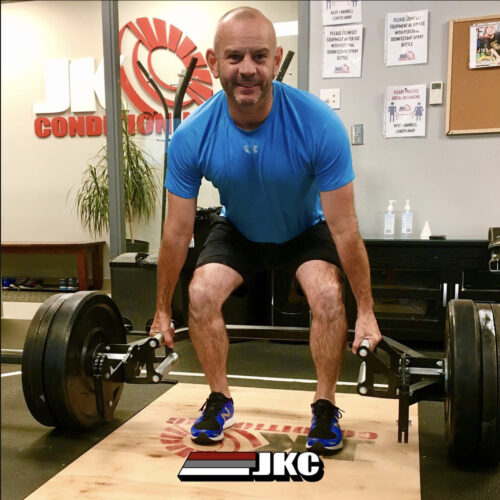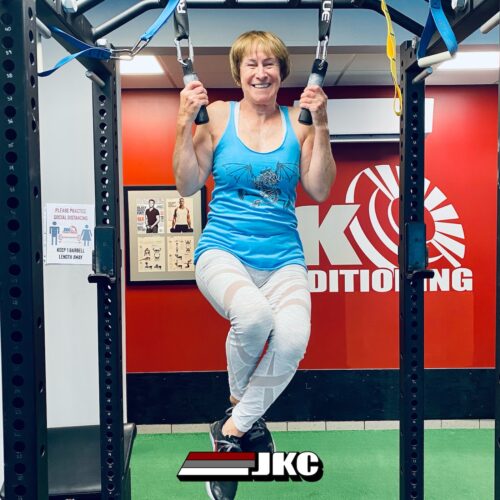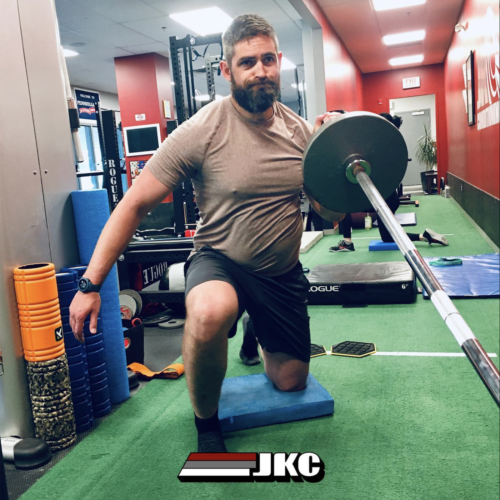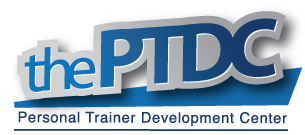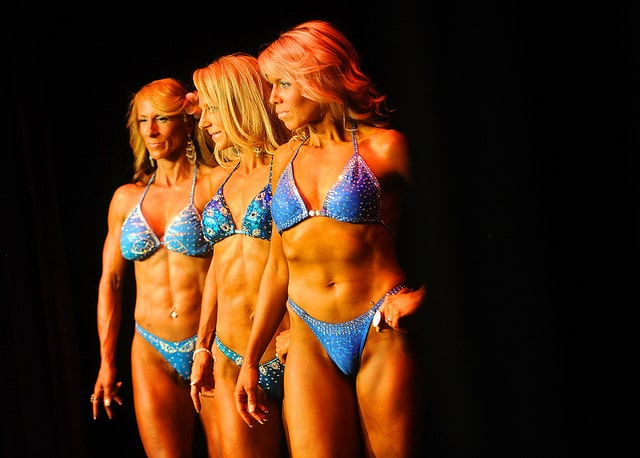
So earlier in the week, I was quoted on Women’s Health (my first appearance) with Lee Boyce (a colleague of mine and fellow fitness writer/trainer from Toronto) in a short article on how long it takes to see muscle definition.
Link here: http://www.womenshealthmag.com/fitness/muscle-definition
I was asked several questions about the topic and the author took my quotes, along with Lee’s, to write the article.
There has been an outrage that the article missed one very important piece of the “seeing muscle definition” puzzle: your body composition!!
I was even asked about fat levels and how it contributes to seeing muscles but he did not included my answer. So just to clear things up, here are a few of his questions about seeing defined muscles along with my answers:
Q: When should you start to see more muscle definition when you’re strength training? Could you give a rough ballpark?
JK: This is a tough question to answer as the timeframe can be influenced by several variables. If the trainee is a beginner in the gym, the initial improvements in strength are mostly neurological, meaning better movement and neuromuscular coordination. This usually takes 4-8 weeks depending on the frequency and consistency of training, exercises performed and the sets, reps and weights used for each exercise. Following this time period, muscle development and muscle definition become the prominent adaptation from weight lifting. Genetics, exercise technique, training intensity and nutritional support are additional factors that can play a role in how fast trainees can start seeing defined muscles in the mirror. If the trainee has past the beginner stage of training and is a novice or advanced lifter, muscle development can happen in a shorter time period.
Q: What things factor in when it comes to growing muscles and showing off muscle definition? Like body fat levels.
JK: You are totally right. Seeing defined muscles and even muscle striations requires a decrease in body fat percentage or in other words, better body composition. This can be achieved by modifying one’s diet and by expending many calories in the gym, from both weight lifting and cardiovascular workouts. To develop muscle, for the most part, weights lifted should be above 60% of your maximum weight lifted. For example, if you can bench press 100 lbs, you will need to lift over 60 lbs for various sets and reps to develop muscle. Science has also shown us recently that muscle damage caused by lifting weight, the intramuscular or mechanical tension placed on a muscle during exercise and metabolic stress resulting from energy production and substrate metabolism within muscle fibers, are three primary factors responsible for triggering the muscle growth response. For more information, you can refer to Brad Schoenfeld’s article The Mechanisms of Muscle Hypertrophy and their Application to Resistance Training in the Journal of Strength and Conditioning Research (pubmed link here: http://www.ncbi.nlm.nih.gov/pubmed/20847704).
Q: What about your diet? I know this will definitely play a role. What foods should you eat to help bulk up and show off your muscles?
JK: Diet plays a very influential role in determining how much muscle you can grow, how well you recover between workouts and how much lean and fat mass you have. The building blocks for muscles are proteins, so eating a diet that meets daily protein requirements is a must for developing muscles. Striving to eat 1.6 grams or protein/kg of body weight daily is a good goal to shoot for. So, for someone who weighs 60 kg should consume ~96 grams of protein throughout the day. Leans meats, beans, yogurt, cheese, and protein powders (e.g. whey, rice, pea, hemp, etc.) are good food choices that are high in protein.
So, there you have it. Seeing defined muscles requires an improvement in body composition: an increase in muscle mass and a decrease in fat mass. This applies to both females and males. What most refer to as toned, defined muscles (and when you see them) are influenced by several factors and requires work both in and out of the gym.
photo credit: Joint Base Lewis McChord via photopin cc

